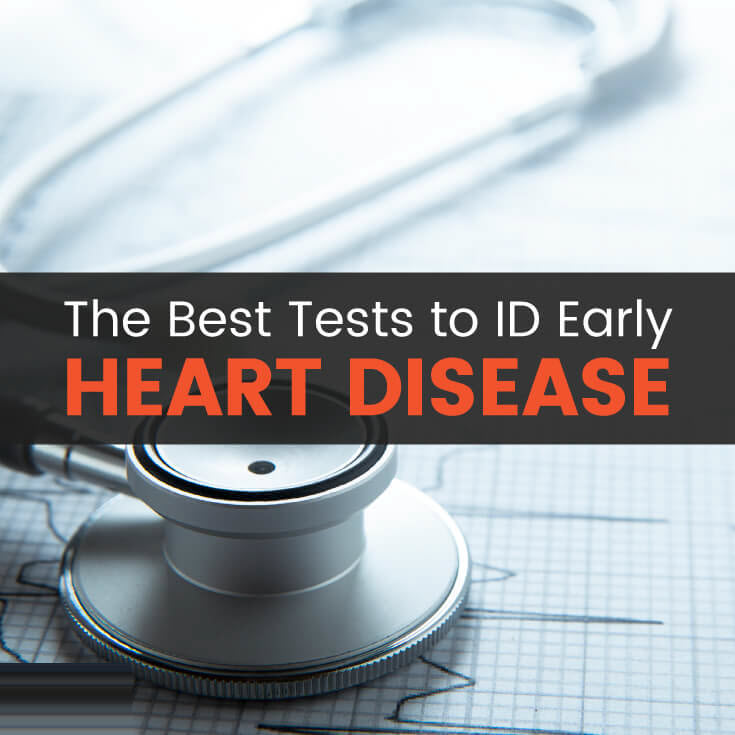
Life-Saving Heart Disease Tests
Heart disease remains the leading cause of death for both men and women, accounting for one in every four deaths in America. With factors like high blood pressure, high cholesterol, smoking, diabetes, obesity, poor diet, physical inactivity, and excessive alcohol use all contributing to this deadly condition, early detection becomes crucial for survival.
What if we could better predict heart disease before it strikes? The hundreds of thousands of people losing their lives to this condition could better prepare to fight it and potentially live longer healthier lives.
The 5-Test Combination That Doctors Recommend
The standard approach to predicting heart disease typically focuses on blood pressure, cholesterol levels, diabetes, and smoking history. However, medical professionals now recognize that a combination of five simple tests can provide a clearer picture of who might develop heart problems.
Understanding the Five Key Tests
These five tests work together to give doctors a comprehensive view of your heart health:
-
EKG (Electrocardiogram) – This test shows information about hypertrophy or thickening of the heart muscle
-
Limited CT scan – Identifies calcified plaque buildup in the arteries
-
Blood test for C-reactive protein – Indicates inflammation in the body
-
Blood test for NT-proBNP hormone – Shows stress on the heart
-
High-sensitivity troponin T blood test – Reveals damage to the heart muscle, even in people without symptoms.
While hospitals commonly use troponin testing to diagnose heart attacks, the high-sensitivity version can detect tiny amounts of damage in people who show no symptoms of heart disease. Though these high-sensitivity tests aren’t widely available yet, they will be soon, and the other four tests are already accessible.
Why This Combination Works Better
This powerful set of tests doesn’t just help doctors predict heart attacks and strokes – it also enables them to foresee heart failure and atrial fibrillation, making it an excellent combination for predicting various heart troubles.
Unusual Signs You Might Be at Risk
Beyond the standard tests, several strange indicators might suggest you’re at risk for heart disease. These lesser-known warning signs could prompt you to get tested sooner rather than later.
Your Address Matters
Where you live might affect your heart health more than you think. A 2001 study in The New England Journal of Medicine found that people living in lower-income neighborhoods were more likely to develop heart disease than those with similar incomes living in wealthier communities.
This wasn’t about personal income – it was about the neighborhoods themselves. This represents a clear example of environmental factors influencing health outcomes.
Check Your Earlobes
Have you noticed a diagonal crease in one or both of your earlobes? This feature, now called “Frank’s Sign,” might be a warning sign of heart trouble.
Arthur Friedlander, a professor of oral and facial surgery at UCLA, explains that this happens because the earlobe is where many blood vessels end. If you’re experiencing blood circulation blockages elsewhere, they might appear as wrinkles in your earlobes.
Grip Strength as a Predictor
Your grip strength might tell you more about your heart than expected. Research has found a possible link between lower muscular strength (measured by grip strength) and an increased risk of dying from heart disease.
In one study, each 11-pound decrease in grip strength was connected to:
-
17% higher risk of dying from heart disease
-
9% higher risk of stroke
-
7% higher risk of heart attack
-
16% higher risk of dying from any cause.
Testing grip strength could be a simple, inexpensive way to screen for heart problems early. However, more research is needed to determine if improving strength reduces heart disease risk.
Breakfast Habits and Heart Health
Do you skip breakfast? According to a 2017 statement by the American Heart Association, eating breakfast regularly may lower your risk of heart disease.
Studies show that breakfast eaters are less likely to have high cholesterol or blood pressure. Unfortunately, about 20-30% of American adults skip this important meal1.
For heart health, start your day with healthy fats and protein while avoiding sugary breakfast foods.
Natural Ways to Protect Your Heart
While these tests are valuable tools for predicting heart disease, being proactive about heart health is essential regardless of test results.
Move Your Body Regularly
Exercise helps manage hormones and blood sugar levels, reducing stress and boosting mood. Choose activities that match your personality and fitness level – anything from gentle walking or yoga to more intense burst training or HIIT workouts can benefit your heart.
Eat Heart-Healthy Foods
A diet rich in anti-inflammatory foods supports heart health. Include:
-
Fiber-rich and antioxidant-rich foods
-
Vegetables and fruits (especially berries and citrus)
-
Herbs and spices (particularly turmeric and raw garlic)
-
Heart-healthy teas like green, oolong, or white tea
-
Legumes and beans
-
Healthy fats from nuts, seeds, avocados, wild-caught fish, and quality oils
-
Wholesome proteins like cage-free eggs and pasture-raised poultry.
Reduce Chemical Exposure
Research has shown potential links between certain chemicals and heart disease. For example, BPA, commonly found in canned foods and drinks, changed natural heartbeat signaling in female rats during a 2011 study, leading to arrhythmia – irregular heartbeats that can sometimes cause sudden cardiac death.
Manage Stress Effectively
Reducing stress is crucial for heart health. Consider:
-
Limiting caffeine, smoking, and alcohol
-
Getting adequate sleep and rest
-
Practicing prayer or meditation
-
Journaling and creative expression
-
Spending quality time with loved ones, including pets
Remember that exercise is also an excellent stress-buster!
When Should You Get Tested?
If you have risk factors for heart disease – such as family history, high blood pressure, high cholesterol, diabetes, or obesity – talk to your doctor about these tests. Even if you feel healthy, these screenings could detect problems before symptoms appear.
The five-test combination provides valuable information that goes beyond standard screenings, potentially catching heart issues that might otherwise go unnoticed until they become serious.
Taking Action for Heart Health
Knowledge is power when it comes to heart disease. Understanding your risk factors and getting appropriate testing can help you take control of your heart health before problems develop.
Remember that these tests are tools for prediction and prevention – they’re not a substitute for healthy lifestyle choices. Even with good test results, maintaining heart-healthy habits remains essential.
Combining smart testing with proactive lifestyle changes can significantly reduce your risk of becoming another heart disease statistic. Your heart works hard for you daily – taking steps to protect it is one of the best investments you can make in your long-term health and well-being.








